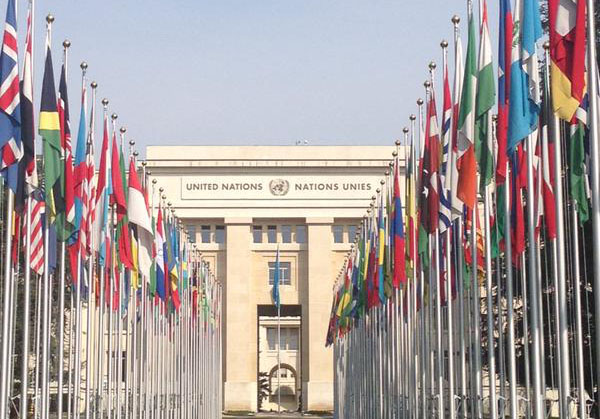
Mar 8, 2016 | Advocacy, Non-legal submissions
The ICJ spoke today at the UN Human Rights Council, addressing the human rights impacts of tax evasion and avoidance, and on women’s access to food and the right to food.
The statement was made in an interactive dialogue with the Independent Expert on the effects of foreign debt, and the Special Rapporteur on the right to food.
The statement addressed the following points, among others:
Welcoming the report of the Independent Expert, the ICJ highlighted that tax evasion and tax avoidance are forms of business’ misbehaviour that are facilitated by inadequate legislation and lack of international frameworks and cooperation in tax matters, and as such need to be tackled by the international community. This is all the more important now that the private sector has been assigned a greater role in the achievement of the 2030 development goals. In this regard, the recommendations by these Special Procedures should receive careful consideration.
The ICJ also welcomed the report on Women’s access to food by the Special Rapporteur on the Right to Food. The report highlights the legal barriers in domestic law that prevent women from fully realizing their right to food, including property rights, land rights and intellectual property rights. The report also highlights the negative impact of certain economic and market models as well as agribusiness corporations in enhancing women’s difficulties in accessing food and achieving food security.
The full statement may be downloaded in PDF format here: HRC31-OralStatement-IEforeigndebt-2016
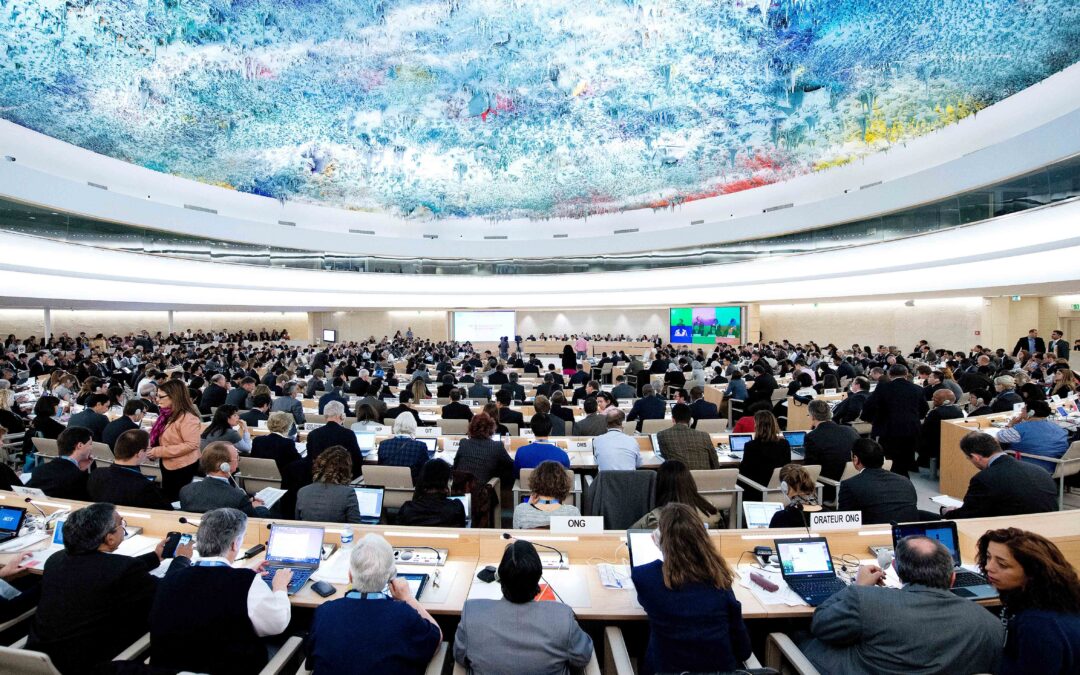
Mar 4, 2016 | Advocacy, Non-legal submissions
The ICJ prepared an oral statement on the situation of human rights defenders in Malaysia, for today’s interactive dialogue at the Human Rights Council with the UN Special Rapporteur on the situation of human rights defenders.
The statement could not be delivered in the limited time available for civil society statements; its text is set out below:
ICJ Oral Statement in the Interactive Dialogue with the Special Rapporteur on the situation of human rights defenders, Mr. Michel Forst
SITUATION OF HUMAN RIGHTS DEFENDERS IN MALAYSIA
3 March 2016
“The International Commission of Jurists (ICJ) welcomes the report of the Special Rapporteur on the situation of human rights defenders.
The work of human rights defenders is particularly under challenge in States where governments have conferred on themselves sweeping powers to restrict human rights on grounds of national security. One example, as reflected in the Special Rapporteur’s “Observations on communications” (UN Doc A/HRC/31/55/Add.1), is the situation of human rights defenders in Malaysia.
The ICJ welcomes the Attorney General’s decision to drop sedition charges against law lecturer Dr. Azmi Sharom; however, the Sedition Act and the Peaceful Assembly Act are still being abused to harass human rights defenders and others. Most recently, the High Court of Malaysia sentenced activist Hishamuddin Rais to nine months in jail for sedition, for calling for peaceful protest against the results of the 2013 general election on the basis that it was not transparent. Maria Chin Abdullah and Jannie Lasimbang, organizers of the Bersih 4.0 peaceful assembly calling for good governance, were charged under the Peaceful Assembly Act for allegedly omitting to inform the police about the assembly. There have reportedly been at least 91 cases of arrests, charges or investigations for sedition during 2015, and more than 30 cases of arrests under the Peaceful Assembly Act since 2013. Most, if not all, of these people are human rights defenders, including Eric Paulsen, the Director of Lawyers for Liberty, Adam Adli, a human rights activist, and Mandeep Singh, the Secretariat Manager of Bersih.
Unless repealed or drastically revised, these laws will continue to facilitate sweeping and arbitrary repression of freedoms of expression, assembly and association of human rights defenders, under the flag of national security. This contravenes the UN Declaration on Human Rights Defenders and numerous other resolutions of the Human Rights Council and General Assembly, including General Assembly resolution 70/161, adopted by the General Assembly in December with Malaysia voting in favor. Among other things, resolution 70/161 urged States ensure that human rights defenders are able to exercise the rights to freedom of opinion, expression, peaceful assembly and association, which are essential for the promotion and protection of human rights; and it emphasized that national security measures must not hinder the work and safety of individuals engaged in promoting and defending human rights.
In this context, the ICJ would like to ask the Special Rapporteur to comment on the obligations of governments to repeal or amend legislation that allows for abusive arrest or prosecution of human rights defenders on grounds such as “national security”, “sedition” or for not giving prior notice of assemblies.”
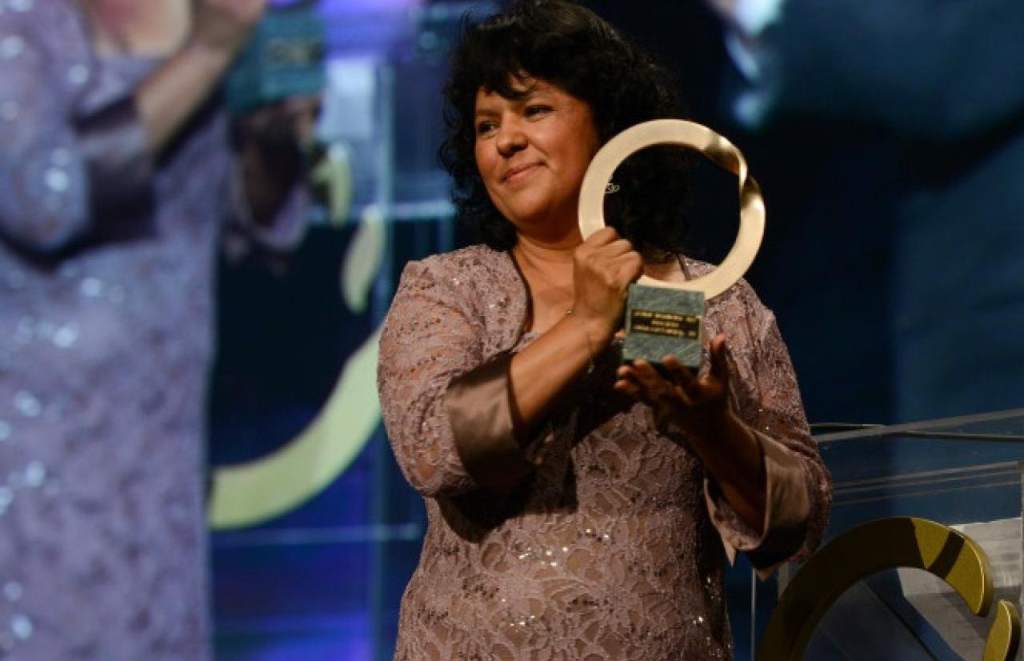
Mar 3, 2016 | Comunicados de prensa, Noticias
La CIJ condena asesinato la defensora de derechos humanos y Coordinadora General del Consejo Indígena de Organizaciones Populares de Honduras (COPINH).
En la madrugada, fue asesinada en su residencia Berta Cáceres por un grupo de sicarios.
La CIJ condena enérgicamente este asesinato, que no solo afecta a su familia, sino también al movimiento de Derechos Humanos en dicho país y al Pueblo Lenca de Honduras.
Además, constituye un ataque contra el movimiento de derechos humanos de toda la región Centroamericana.
Berta Cáceres llevó a cabo una lucha tenaz a favor de la defensa de los recursos naturales del Pueblo Lenca de Honduras.
En reiteradas ocasiones recibió amenazas de muerte, además de sufrir persecución política y órdenes de detención infundadas.
Su lucha, junto con la del COPINH y el pueblo hondureño, fue reconocida con varios premios internacionales.
La CIJ exige de las autoridades hondureñas una pronta investigación, para aclarar los hechos, determinar quienes fueron los autores materiales e intelectuales y llevarlos ante la justicia.
Ramón Cadena, Director de la CIJ para Centroamérica expresó: “Honduras ha perdido a una valiente y comprometida defensora de derechos humanos; es imprescindible que este crimen no quede en la impunidad. Los sicarios que cometieron el crimen y los autores intelectuales deben ser castigados. Esperamos un mensaje claro por parte del Gobierno y que de inicio de inmediato a las acciones correspondientes”.
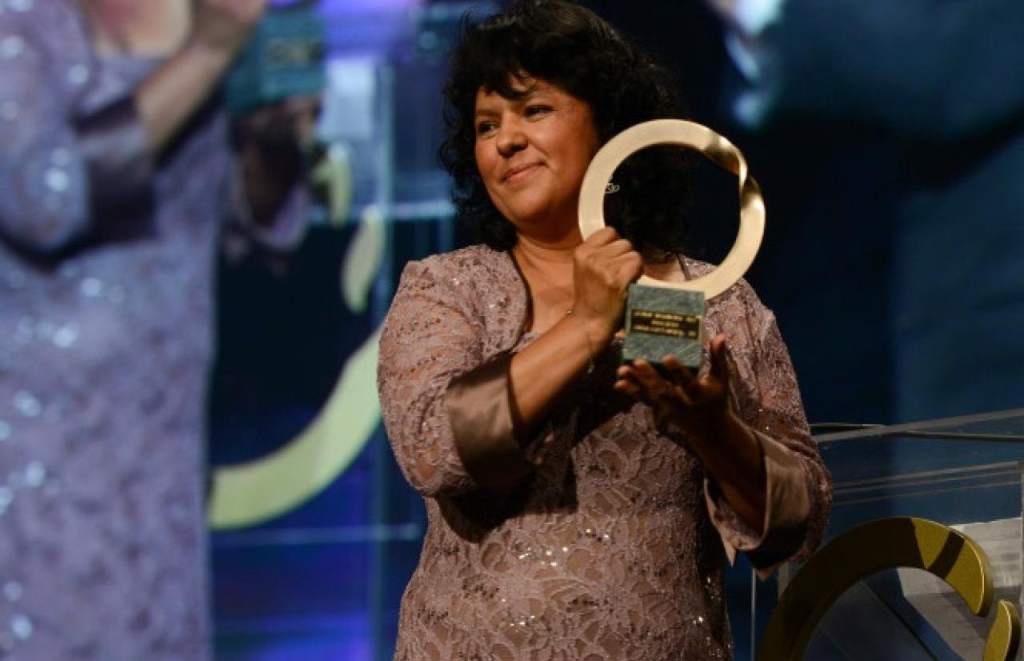
Mar 3, 2016 | News
One of the leading indigenous activists and human rights defenders in Honduras, Berta Cáceres had worked jointly with the ICJ on several projects. She was shot dead by unknown attackers at her home today.
The ICJ urges the Honduran authorities to launch a rapid and independent investigation to identify who perpetrated and/or ordered the murder of Berta Cáceres and bring the person(s) responsible into court.
“We have lost a courageous and committed human rights defender,” said Ramón Cadena, ICJ’s Regional Director for Central America.
“It is essential that this crime does not remain unpunished. The government must send a strong signal and take immediately measures to effectively investigate this killing and hold those responsible to account,” he added.
A relentless defender of indigenous peoples rights to land and natural resources, Berta Cáceres had been awarded the Goldmann Environmental Prize in 2015 (photo).
It is a huge loss not only for her family, but also for the whole human rights movement in Honduras, the ICJ said.
Berta Cáceres had received repeated death threats from both state security forces and the company planning the Agua Zarca dam, which she had successfully fought against, together with residents of the Lenca Community.
She had been placed under the protection of the local police in La Esperanza, the area where she lived. Obviously this was not enough.
The situation of human rights defenders in Honduras is dire and has continuously deteriorated in the recent years, with their activities being systematically criminalized.
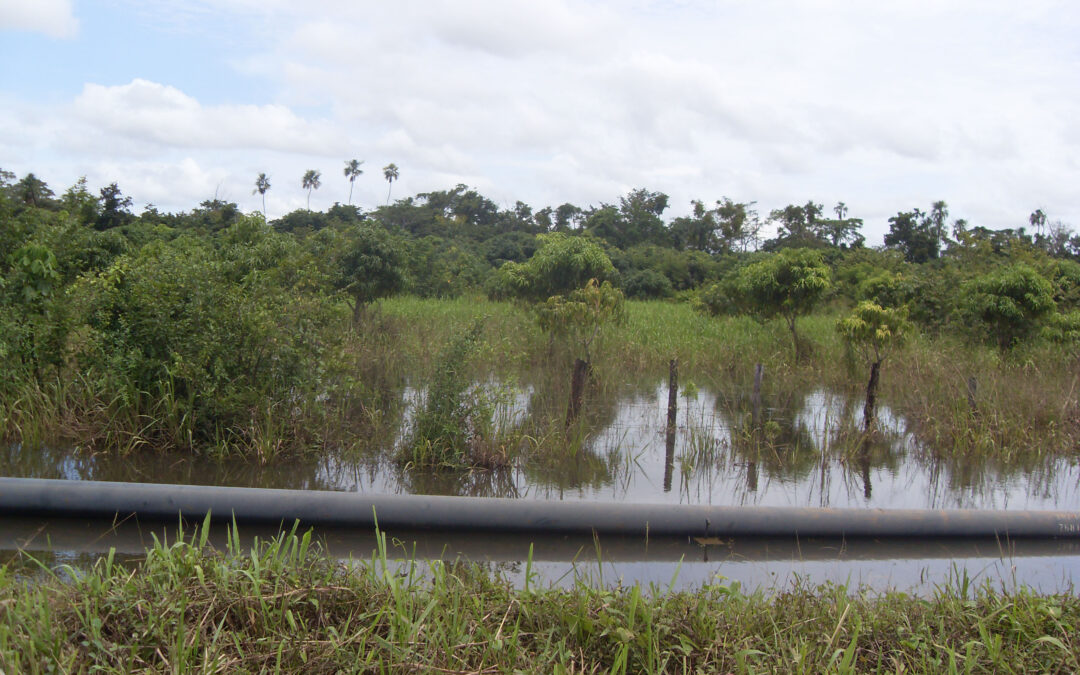
Mar 1, 2016 | Artículos, Noticias
En mayo de 2015, la empresa REPSA entregó un oficio en el Ministerio de Ambiente y Recursos Naturales donde acepta su responsabilidad por el desborde de sus lagunas de oxidación artificial que se derramaron sobre las aguas del río La Pasión el 28 de abril de 2015.
Sobre un segundo evento del 6 de junio de 2015 no hubo un reconocimiento de su responsabilidad.
El daño causado al Río la Pasión persiste al día de hoy y ha obligado a varias comunidades que allí habitan a buscar fuentes alternativas de sustento y trabajo.
El 10 de junio de 2015, vecinos del municipio de Sayaxché, en asamblea general integraron la Comisión por la Defensa de la Vida y la Naturaleza, para dar seguimiento por la vía legal a la contaminación del río.
El 11 de junio de 2015 presentaron una denuncia en el Ministerio Público con sede en el Municipio de San Benito, departamento de El Petén y demandaron a la empresa REPSA.
La Jueza Karla Hernández del Juzgado Pluripersonal de Primera Instancia Penal, Narcoactividad y Delitos contra el Ambiente resolvió investigar y suspender las operaciones de la empresa por un período de seis meses.
La decisión de la Jueza provocó diferentes acciones en su contra.
Entre las acciones más evidentes se cuentan: a) Antejuicio presentado en septiembre de 2016 por abogados vinculados a la empresa REPSA, el cual fue declarado sin lugar por la Corte Suprema de Justicia el 9 de diciembre de 2015; b) Demanda de juicio sumario civil para deducción de responsabilidades civiles por “extralimitación de sus facultades como juez B del Juzgado Pluripersonal de Primera Instancia Penal, Narcoactividad y Delitos contra el Ambiente del Municipio de San Benito, Departamento de El Petén, toda vez que ordenó una medida precautoria que no está contemplada en la ley”; esta denuncia fue aceptada para su trámite por la Sala Regional Mixta de la Corte de Apelaciones del Departamento de El Petén, Municipio de Poptún el 6 de octubre de 2015 y se encuentra en trámite.
Acerca de estas acciones, la CIJ considera:
- Según los Principios básicos de las Naciones Unidas relativos a la independencia de la judicatura no se efectuarán intromisiones indebidas o injustificadas en el proceso judicial, ni se someterán a revisión las decisiones judiciales de los tribunales, salvo la vía de la revisión judicial por medio de los recursos legales existentes;
- En el presente caso, la decisión de la jueza Hernández fue recurrida conforme los recursos propios del proceso penal (reposición y apelación); sin embargo, mediante otras acciones, se tomaron medidas en contra de la jueza Hernández y no contra la resolución emitida por ella, como debiera ser.
- Estas acciones atentan contra la independencia judicial, en tanto buscan evitar que la Jueza Hernández conozca el caso;
- La Jueza Hernández ha recibido amenazas sin que el Estado de Guatemala le brinde la protección debida;
Ramón Cadena, Director de la Comisión Internacional de Juristas para Centroamérica expresó: “Urgimos a las autoridades del Sistema de Justicia a tomar medidas adecuadas para evitar que las y los jueces independientes, resulten afectados por este tipo de acciones e intimidaciones.”







